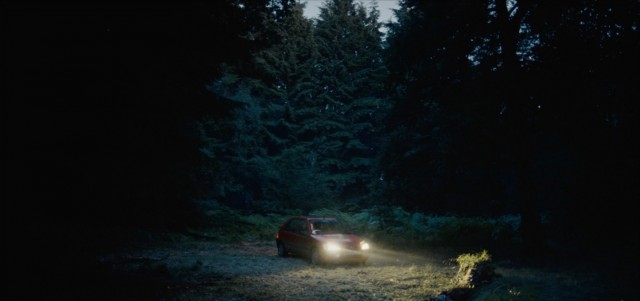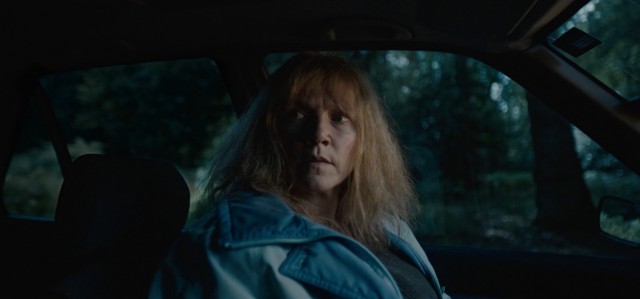Returning to S/W after his previous short, The Devil’s Harmony, caused quite the stir on the festival scene, director Dylan Holmes Williams serves up another inviting slice of dark-comedy with his latest film Catching The Bus. A snappy two-hander driven by the awkward chemistry between leads Ryan Sampson (who also wrote the film along with co-creator Samantha Martin) and Jessica Hynes, the eight-minute short follows this odd couple as the strange circumstances surrounding their meeting lead them to develop an unusual bond.
“Sometimes in life, you have to make a decision whether to be a good person or a person who gets what they want”. Catching The Bus opens with this line, delivered by Sampson (as voiceover) as we see him sat in what looks like an interrogation room and as the rest of the film plays out, primarily in the front seat of a car, we begin to get a sense of what he means. With the writer admitting that Catching The Bus was “intended as the starting point for a larger story”, it feels like that could be the tagline for any future development.
The early sections of the film are largely driving by intrigue, as we start to wonder what has brought this strange pairing together in a woodland clearing at dusk. As Hynes’ character proclaims she’s “always wanted to do it in nature”, we begin to form preconceptions around this uncomfortable first meeting, but it’s only when she whips out a gun and exclaims “lets just chuffing kill ourselves” that we start to truly understand the scenario.

The majority of Catching The Bus takes place in Tom’s car in this darkly picturesque clearing.
Watching the short, you almost instantly get the sense that lead characters Tom and Marion have been dealt a sh*tty hand in life and that quickly lends them empathy, making you, the viewer, route for them. Sampson describes the pair as “two strange, dysfunctional underdogs in deeper water than they could’ve imagined” and although we never get to witness the trouble they get into first-hand, the amount of backstory, character development and hints at future plot-twists in the brief runtime of Catching The Bus allow us to build a narrative around the snippet of story presented on screen.
As we discuss the inspiration behind the short, Sampson reveals he’s always been attracted to characters with “unusual private lives that would shock us to know about, but who we’d pass in the street without a second thought”. Citing Mary Bale, a woman who gained infamy after being filmed putting a cat into a bin, as one such example, he felt compelled to explore these people and their brief moments of madness.

Jessica Hynes (Shaun of the Dead) stars as Marion, a desperate woman in need of help.
“The humanity of his writing was what drew me to the project”, Holmes Williams reveals as he explains his attraction to the script, adding that he believes Catching The Bus “tackled a really important issue – mental health – with a sensitive levity”. Despite the comedy element of the film, there are certainly some serious underlying themes bubbling under the surface of the short and although they’re not fully exposed here, you get a thought-provoking sense of them and can see how they could be further uncovered if the project was expanded.
This proof of concept feel is the one thing that might put some viewers off Catching The Bus. There’s enough story within to make it work as a standalone, but there’s also an undeniable awareness that you’re watching a project meant to serve as a precursor to something larger. We’re used to seeing this “pilot” short format used to launch science-fiction or horror projects, so it’s interesting to see it used in the comedy/drama field. There’s a certain The End of the F***ing World vibe emanating from this short and as that series proved a hit, fingers crossed Catching The Bus can follow in its success.

 Rob Munday
Rob Munday